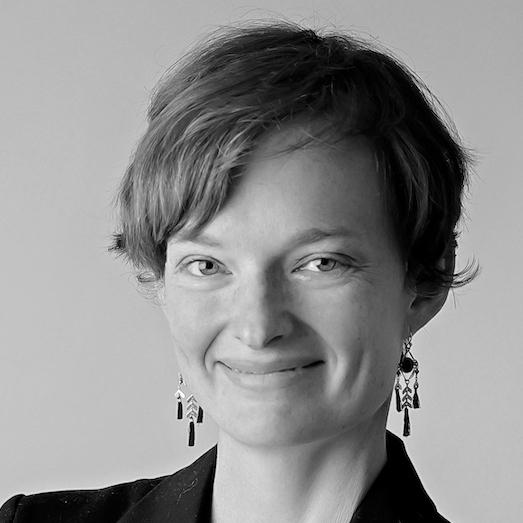For over a decade Dr Eleonore Fournier-Tombs has conducted groundbreaking research at the intersection of technology and gender, migration, democracy, and health. Her research has been recognized internationally and in 2012 she was awarded the UN21 Award by Secretary General Ban Ki Moon for her work at UN-OICT on the Rio+20 Conference.
Prior to her appointment at UNU-CPR, Fournier-Tombs worked for various UN and multilateral organizations, including UNU Macau, where she led a research programme on AI and gender in Southeast Asia; the UN Human Development Report Office where she managed human development data and online communications; the Centre for Humanitarian Data, OCHA, where she contributed to modelling Covid-19 in countries experiencing humanitarian crises; and the World Bank where she participated in climate-related policy research in Afghanistan, Morocco, and Jamaica. In 2021, she also initiated a research lab on Accountable AI in a Global Context at the University of Ottawa.
This experience will enable UNU-CPR to take forward an ambitious research agenda closely aligned with the priorities of the UN Secretary-General who has called for prevention to be the top priority of the UN – ensuring the organization becomes more future-oriented and is capable of innovating to meet new challenges. The Anticipatory Action pillar will focus on four priority thematic areas: humanitarian response, peace and disarmament, health, and climate change. It will also aim to support new initiatives and make meaningful contributions to the anticipated Emergency Platform for complex global shocks and the UN Futures Lab.
“Eleonore’s appointment will help to consolidate and advance our efforts to strengthen the multilateral system, ensuring it can keep pace with emerging global challenges on multiple fronts,” says David Passarelli, Executive Director of UNU-CPR. “Her outstanding research expertise and knowledge will help the Centre enhance its offer to the UN and Member States: helping to build their preparedness so they can better predict where and when crises emerge and are able to respond more quickly and effectively.”
Some immediate areas of focus for the programme will include conducting applied research initiatives in the domains of AI and the Women, Peace, and Security Agenda; deliberative methods for the post-SDG agenda; and the effects of misinformation on elections in conflict and post-conflict states. These initiatives will combine predictive analytics, policy recommendations, and technical applications to provide relevant and reusable research outputs.
This agenda will build on previous and ongoing research at UNU-CPR that is helping the UN to strengthen its capacities in areas such as peacebuilding and humanitarian response. This includes in-depth analyses on the potential of predictive technologies to prevent conflict; close examination of regional conflict prevention approaches – to identify lessons learned and capture best practices; and a study of the reform of the UN Development System – to assess whether the reform has improved the UN’s capacity to offer joined up support for national development priorities.
The Anticipatory Action and Innovation programme has also provided input to the work of the High-Level Advisory Board on Effective Multilateralism (HLAB), which has been carrying out substantive research into effective multilateralism and will develop bold and concrete recommendations for the Secretary-General and Member States ahead of the 2024 Summit of the Future. The recommendations are being consolidated into a report that will be handed over to the Secretary-General’s office in mid-April.



